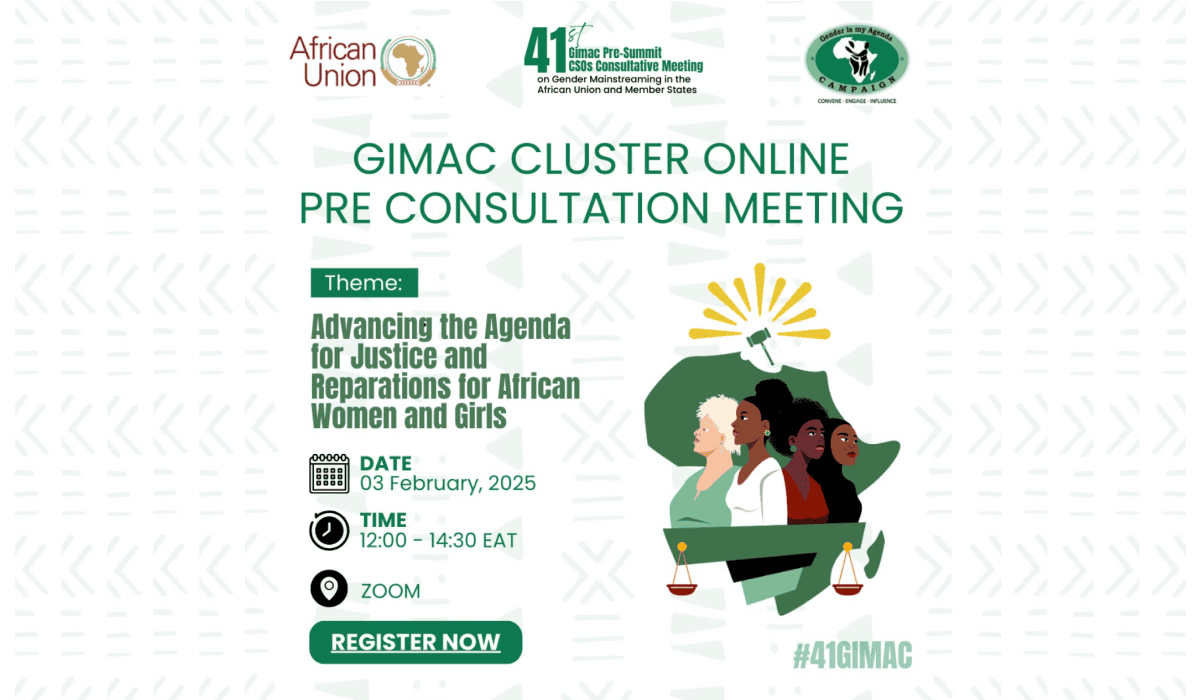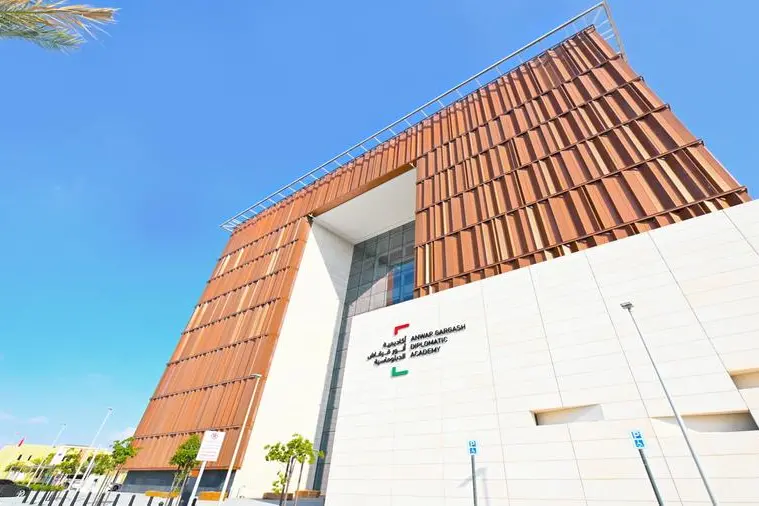On 03 February 2025, the GIMAC Network convened a joint cluster online meeting to explore the African Union’s (AU) 2025 theme, “Justice for Africans and People of African Descent Through Reparations.” Held ahead of the 41st GIMAC Pre-Summit CSOs Consultative Meeting, the discussion brought together civil society organisations, gender advocates, and peacebuilders to critically engage on the issue of reparations for African women and girls.
ACCORD participated in the meeting as GIMAC Vice Chair and Co-Thematic Lead of the Peace and Security Cluster, reaffirming its commitment to advancing justice and reparations in Africa. During the Peace and Security Breakout Session, Ms Marisha Ramdeen, Coordinator of Programmes at ACCORD, moderated discussions focusing on the impact of conflict on women and girls. Participants highlighted the urgent need for survivor-centred reparations and community-led justice processes to ensure healing and sustainable peace.
The meeting underscored the continued economic dependence of African nations on the West, with women in the labour force facing exploitation and systemic exclusion. Many African countries struggle to service debt, further entrenching inequality and limiting their ability to implement meaningful reparations. Participants emphasised that reparations must not be mistaken for charity, but rather recognised as an essential mechanism to address historical and structural injustices that have left African economies vulnerable.
Discussions also centred on the role of natural resources in fuelling conflict and instability, particularly in the Democratic Republic of Congo (DRC). The ongoing exploitation of “blood resources” was identified as a significant barrier to peace, with participants calling on the AU and SADC to take decisive action to curb resource-driven conflicts. Concerns were raised about the continuation of violence even after formal peace agreements are reached, with the proliferation of arms and economic exploitation sustaining instability in affected regions.
From a peace and security perspective, the conversation highlighted how conflict heightens the risk of sexual and gender-based violence (SGBV), disproportionately affecting women and girls. It also tackled issues of patriarchy in African societies that inhibit the progress of women who have been affected by historical injustices. Drawing on experiences such as Uganda’s struggle with the Lord’s Resistance Army (LRA), speakers stressed that reparations must prioritise survivor-centred healing, ensuring that affected individuals have access to safe spaces for psychosocial and physical recovery. The need for a community-led justice process was reinforced, with participants calling for reparative frameworks that reflect the lived realities of women and girls in conflict-affected settings.
The meeting concluded with key recommendations for advancing reparations in policy and practice. Participants urged the African Union to develop a transitional justice policy that goes beyond financial compensation to address both material and psychosocial reparations, ensuring that healing remains at the core of justice efforts. Economic justice was identified as a critical pillar, with calls for reparations to include structural interventions that uplift African women and communities rather than perpetuating cycles of dependency. Strengthening regional and continental advocacy was also highlighted as a priority, with civil society, regional bodies, and AU institutions encouraged to work collaboratively towards a concrete reparations framework that moves beyond rhetoric to tangible implementation.
As preparations continue towards the 41st GIMAC Pre-Summit Meeting, the insights from this joint cluster meeting will inform broader regional advocacy efforts, ensuring that the voices and priorities of African women and girls remain central to the reparations agenda.








